Nearshoring to Mexico has impacted the growth of the global market in several manufacturing sectors, including the medical device industry. Due to the convenient proximity to the U.S. market and an established infrastructure, Mexico continues to be a thriving production hub. 
2024 revenue reports reflect the medical device market in Mexico is expected to reach upwards of $7.96 billion with an anticipated annual growth rate of 5.37% to reach market volume of $10.34 billion by 2029. Among the many reasons for the surge in growth is the improving access to advancements in medical technology driving demand.
With the support of a highly skilled workforce, a reputation for quality, and a reliable supply chain, among other benefits, Mexico continues to be a chosen location for production expansion and increased foreign direct investment. It is already home to many of the top global medical device manufacturing companies in the world, including Medtronic, Stryker, Baxter, Becton Dickinson, and Intuitive Surgical, and continues to support growth in the sector.
For decades, U.S. and other foreign manufacturers have relied on the cost-effectiveness of Mexico’s workforce. However, it’s the availability of technical talent that allows manufacturers to fulfill roles that may otherwise go unfulfilled as the U.S. struggles with recruiting qualified labor.
Many U.S. and other foreign manufacturing companies partner with local universities in Mexico. They set up specific training programs to teach skills required to consistently meet production needs.
Due to Mexico’s proximity to the U.S. market, it’s easier for project managers to provide quality assurance and production oversight compared to manufacturing in China. Also, because of the highly specific nature and requirements necessary for medical device production, recruiting top-level talent ensures fewer mistakes that may delay getting products to market.
The complex logistics of manufacturing in China have caused many manufacturers to diversify their portfolios and expand production to Mexico. U.S. manufacturing companies can import and export more quickly and at a much lesser cost compared to production in China. Plus, a steady supply chain and multiple transportation methods allow manufacturers to choose the best route for them.
Medical device products in Mexico are subject to the same safety regulations as those manufactured in the U.S., under FDA Class I, II, and III guidelines. Additionally, provisions under the USMCA clearly outline protections for intellectual property and penalties for violations for greater manufacturing confidence.
One of the key benefits helping to strengthen the medical device sector is Mexico shelter manufacturing. This unique advantage provides U.S. and other foreign manufacturers with the easiest and safest way to do business.
Working under a shelter model mitigates a manufacturer’s risk and exposure to legal authorities while allowing them to maintain full control over production. Additionally, a Mexico shelter company handles all administrative responsibilities needed to launch production, including site selection, HR and recruiting, and tax and customs compliance.
Implementing shelter services allows manufacturers to launch production in three to four months, which cuts the timeline nearly in half compared to setting up as a standalone entity. Plus, it saves costs on labor, infrastructure, and license fees.
Medical device manufacturing is one of the many sectors experiencing significant growth, which is driving new foreign businesses to set up production in Mexico. To get started as quickly and efficiently as possible, most manufacturers choose to work with a shelter company.
Find out if shelter services are a good fit for your manufacturing company and how you can save time, money, and resources by working with IVEMSA. Contact us today.
Source:
https://www.statista.com/outlook/hmo/medical-technology/medical-devices/mexico
Nearshore manufacturing in Mexico has been a popular way for businesses to expand internationally. The close proximity to the U.S. market has helped to reduce labor costs, transportation fees, and delivery times compared to other countries, particularly China.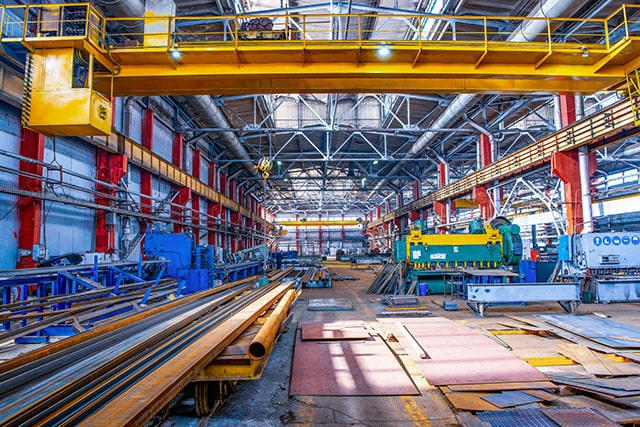
However, it’s important for companies to commit to a long-term growth strategy. It’s rare for foreign manufacturers to return and try again if their initial production attempt fails.
Fortunately, Mexico shelter manufacturing offers both long-term and short-term benefits to consider, though to ensure a seamless transition, partnering with a shelter company is the best way to go.
A long-term mindset is necessary to be a strong presence in the market. Mexico provides an excellent opportunity for U.S. and other foreign manufacturers who want to diversify their portfolios and stay close to an American audience. Additional advantages include:
Nearshore manufacturing in Mexico offers several cost-saving benefits, including reduced labor and transportation fees. Manufacturers can also get products to the U.S. market quicker, helping them to stay competitive.
Furthermore, when working with a Mexico shelter company, there’s an infrastructure in place that allows manufacturers to save on permits and license fees, as well as administrative department setup and management.
America is experiencing a shortage of skilled workers qualified for the growing number of manufacturing roles needed. Meanwhile, it’s difficult to oversee the production quality of workers in China.
Alternatively, the steady availability of Mexico’s technical talent has continued to support the growth of global manufacturers across all sectors and job types. Plus, the proximity to the U.S. provides travel convenience for project manager oversight.
Mexico maintains 12 multilateral trade agreements providing preferential trade access with 44 countries. This includes the USMCA, which favors trade between the United States, Mexico, and Canada and institutes requirements regarding original content and intellectual property protection within the trade bloc.
By diversifying a manufacturing portfolio, it reduces the risk of maintaining sole reliance on one production area. Though many manufacturers are moving operations from China to Mexico, others are actively operating in multiple countries to stay agile and competitive.
Though long-term, Mexico shelter manufacturing is a smart investment, there are many short-term benefits manufacturers can experience right away. These are:
The proximity between the U.S. and Mexico allows for shorter wait times compared to China. In some cases, same-day or next-day delivery is possible.
This time savings is further impactful when considering the extraneous transportation costs from China to the U.S., which counteracts any potential cost savings on labor that may apply.
As industrial space becomes more scarce and lease prices go up in the U.S., there’s a better chance of finding a competitive lease in Mexico.
As part of its site selection services, a Mexico shelter company can help narrow down plant options based on budget and production needs, and create a comparison matrix of buildings that will work best.
U.S. and other foreign manufacturers with IMMEX program approval and VAT certification avoid the 16% VAT on all temporarily imported goods, materials, and equipment required for production. Under the shelter model, this benefit is available on day one.
A Mexico shelter company handles all the administrative responsibilities a foreign manufacturing company needs to launch production. It’s the best short-term entry model, as it reduces risk and exposure to legal authorities, though it also has a long-term advantage.
Once there is a better understanding of how Mexico shelter manufacturing works, a shelter company can help manufacturers continue as a standalone entity.
Our team is here to support your short- and long-term production goals and help you experience a seamless transition. Jumpstart your manufacturing success in Mexico by exploring the benefits of working with IVEMSA.
There have been ongoing comparisons between the value of manufacturing in China vs. manufacturing in Mexico. Though each has its own advantages, the final decision isn’t always choosing one over the other but rather diversifying where to expand production.
Manufacturing in Mexico is cost-competitive, yet cost on its own isn’t always the deciding factor when choosing this option over China. The greatest advantage in expansion to Mexico vs. China is the reaction time to the U.S. market and the availability of Mexico shelter services.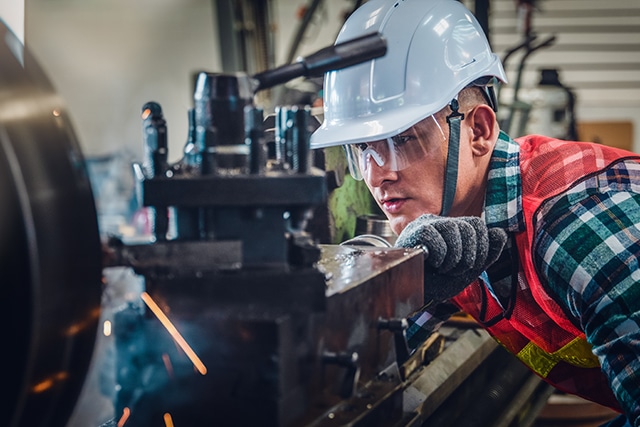
Mexico has a proximity advantage that China, nor any other Asian country, can’t compete with. For instance, even if manufacturing in Southeast Asia may be a cheaper place to produce goods, the supply chain is not as reliable for some industrial sectors, and the transportation time and expense overshadow any savings on labor when shipping to the North American market.
Depending on their audience, manufacturers may choose to launch factories in multiple regions, as China is still an attractive option. However, when addressing a U.S. market, specifically, nothing beats the benefits of Mexico manufacturing. Here’s why:
Overseeing production in China comes with a set of challenges that starts with a significant time difference and extensive travel from the U.S. Whereas, manufacturers headquartered in the U.S. can easily travel to their operations within a few hours and with fewer hurdles.
Due to the proximity between the U.S. and Mexico, shipping time and transportation costs are also greatly reduced compared to China manufacturing. This helps to reduce operational delays and allows companies to release products to the U.S. market faster.
Manufacturing in Mexico vs. China also expands the value to the U.S. economy. Most production materials are shipped from the U.S., which supports its suppliers and combines the infrastructure of the two countries. Plus, it provides the opportunity to employ workers who live in the U.S. as well as Mexico to fulfill the required job roles.
Moreover, the free trade agreement between the U.S., Mexico, and Canada (USMCA) has special requirements and incentives regarding regional value content to benefit North American countries. For example, 75% of a vehicle’s content must be made in North America to qualify for tax-free status, and there are established intellectual property protections that China doesn’t offer.
Manufacturers that choose to expand to Mexico have the unique option of partnering with a shelter company. This minimizes the risk and liability of operating in a foreign country for manufacturers since they will not establish a legal presence when operating under a shelter.
Additionally, setting up factories that manufacturers can easily visit and provide oversight is also part of a risk reduction strategy. When there are delays or problems that arise, U.S. manufacturers can travel to production sites in Mexico in a day versus the extensive time, cost, and planning it takes to travel to China.
Furthermore, a Mexico shelter company takes on all administrative responsibilities necessary to launch production so manufacturers can focus their efforts on production and processes. The support and services of a shelter’s local expertise reduce the learning curve and costs, advance start-up time, and allow companies to stay agile as they grow.
While there are still reasons why manufacturers maintain production in China, it makes sense for those targeting the U.S. market to consider expansion to Mexico. And, by choosing Mexico shelter services, manufacturers can experience a speedy and seamless transition and get up and running in three to four months.
Learn more about the benefits of manufacturing in Mexico and how our shelter company can help you be successful. Contact IVEMSA today.
Shelter services in Mexico have become a strategic advantage for U.S. and other foreign manufacturers wanting to leverage the full potential of nearshoring to Mexico. It’s encouraged global brands from various sectors – including automotive, aerospace, and medical device manufacturing – to continue increasing their foreign direct investment, making the U.S. the largest trading partner of Mexico.
Mexico’s shelter program allows foreign companies to conduct business without the risk and liability of setting up their own entity. Therefore, with the support of a shelter company, manufacturers can seamlessly navigate Mexico manufacturing, enabling them to get their production up and running faster.
Additionally, there are several incentives, including tax benefits and duty-free zones, that a shelter company can help manufacturers secure. The availability of shelter services in Mexico has encouraged manufacturing growth over the years and continues to set up U.S. and other foreign manufacturers for success.
Here are key areas where shelter services in Mexico provide the most value:
Mexico wisely invests in its educational institutions and training programs to sustain a steady pool of technical, well-trained talent. This makes it an attractive option for U.S. and other foreign manufacturers seeking to fulfill various roles for production at a lower cost.
One of the primary benefits of implementing shelter services in Mexico is gaining the expertise and networking accessibility for recruiting and retaining industrial labor. Furthermore, manufacturers save on administrative costs necessary for the recruiting process, including HR, payroll, and accounting rather than having to hire these departments separately.
Mexico’s proximity to the U.S. market also makes it a strategic location for production. In addition to recruiting industrial labor, site selection is an essential part of shelter services in Mexico.
A shelter company like IVEMSA creates a site selection matrix which narrows down viable facilities and compares costs between locations. This helps manufacturers secure competitive space and continue with the next steps for production. IVEMSA is then responsible for leasing the facility and all necessary permits and licenses. This helps to expedite setup and achieve a production launch date in as little as three to four months.
Implementing shelter services in Mexico also reduces the learning curve for U.S. and other foreign manufacturers when navigating the complexity of Mexico’s laws and regulations. Plus, a shelter company helps manufacturers benefit from the unique tax advantages offered under Mexico’s IMMEX program.
Approval into the IMMEX program grants manufacturers a 16% VAT exemption for all temporarily imported materials needed for production. Since a shelter company maintains all required permits and licenses, including IMMEX certification, manufacturers working with a shelter automatically receive this benefit, resulting in significant cost savings.
A shelter company handles all administrative responsibilities, which include HR, accounting, daily trade operations, and payroll. Therefore, manufacturers can fully focus on production while also maintaining complete control and ownership over all processes and intellectual property rights.
Moreover, shelter services allow for flexibility to scale up or stop production as needed. Though IVEMSA maintains a 15-year average customer retention rate, manufacturers are free to establish a standalone entity at any time.
Operating in a foreign country comes with its own set of challenges. Therefore, working with a shelter company is the most popular option for U.S. manufacturers new to setting up operations in Mexico.
Learn how our shelter services can benefit you. Contact IVEMSA today.
For decades, American manufacturers have benefited from the low cost of industrial labor and the convenient location Mexico offers to expand their production and meet growth demands. Now, Mexico is also following suit with what the U.S. has imposed on China with regard to duties.
The Mexican government recently announced a modification to its import law with a temporary measure to raise tariffs anywhere from 5% to 50% for 544 HS codes. These trade classifications include steel, aluminum, plastics, and electrical materials, among others.
Enforcement of this increase began on April 23, 2024, and will remain in effect through April 23, 2026. Though this affects imports from non-free trade agreement (FTA) countries, including China, the increase in import duties will not apply to manufactured goods that comply with a certificate of origin due to the USMCA agreement. This benefit also applies to materials and goods coming from countries with free trade agreements with Mexico.
Rather, it further promotes Mexico’s alignment with the U.S. and Canada as part of the USMCA trade bloc. The USMCA allows American manufacturers to benefit from the elimination of tariffs on trade for qualifying goods between the three countries, further incentivizing American manufacturers to expand or relocate production from China to Mexico.
In addition to Mexico imposing additional tariffs for non-FTA countries, the U.S. has continued restricting trade with China, prompting many to move operations to Mexico, thereby helping to close the competitive gap.
China was once the preferred trade partner of the U.S. due to cheap labor costs. However, struggles with supply chains and inflated transportation expenses have caused U.S. manufacturers to consider nearshoring to Mexico instead.
The trade war between the U.S. and China has also gained new momentum. In 2022, due to national security concerns, the U.S. Department of Commerce barred American companies from shipping equipment to Chinese manufacturers producing advanced chips. Rather, the administration encouraged U.S. manufacturers to establish their own opportunities through the CHIPS and Science Act.
The CHIPS Act is intended to strengthen economic growth with investment in regional innovation throughout the country, to help ensure “what’s invented in America is made in America.” As the U.S. tightens up national security by restricting trade with China, it reveals the early stages of what will eventually be a more segregated trading bloc among North American countries.
Fortunately, with the availability of shelter manufacturing services, American operators can set up production in Mexico quickly and efficiently while also maintaining ownership over processes, equipment, and all intellectual property.
Shelter services in Mexico have been a cost-effective strategy for U.S. companies, especially those that no longer wish to partner with China for resources or manufacturing. With an expert team of advisors, a shelter can help American manufacturers set up operations in approximately three to four months compared to the six to seven months it takes to establish a standalone entity.
Shelter manufacturing services include all the administrative departments necessary to set up production in Mexico, such as HR, accounting, and trade compliance, among others. And, for manufacturers transitioning from China to Mexico, a shelter company like IVEMSA can assist with finding local resource partners and estimate the cost of what it will be to transfer production to Mexico.
The incentives of Mexico manufacturing continue to grow. American companies that wish to save money on operational expenses while maintaining the protection and benefits under the USMCA can rely on this opportunity as a long-term solution.
Sources:
https://www.trade.gov/market-intelligence/mexico-tax-and-tariff-increase-2024
https://www.reuters.com/technology/us-may-soon-unveil-list-chinese-chip-factories-barred-receiving-tech-2024-03-28/
There are vast differences between contract manufacturing and shelter manufacturing services, though the two terms are often used interchangeably. While both production models support operating in a foreign country, that’s where the similarities end.
At IVEMSA, we receive inquiries from companies of all sizes wondering which business model is the right fit. Though many are familiar with what contract manufacturing entails, the term “shelter” raises a few questions.
The shelter program allows U.S. and other foreign manufacturers to reap the benefits of operating in Mexico without the requirement of setting up their own legal entity. In this context, it’s not associated with a building or tax shelter but rather a way to do business that minimizes risk and liability.
As more U.S. and other foreign manufacturers consider moving production to Mexico, it’s valuable to understand the options available. To help navigate some of the differences between contract and shelter manufacturing, here’s an overview of frequently asked questions regarding each. Evaluate the pros and cons as you decide which direction is the best fit.
Contract manufacturing involves using a third-party operator to build products. Companies don’t have ownership or maintain quality control over the processes or products. Whereas, operating under a shelter can be viewed as the next step toward ownership.
With shelter manufacturing services, foreign companies run their own factories and processes and maintain ownership over all goods, materials, and intellectual property as it relates to production. Though many work under the shelter for several years, others eventually graduate from the program to become their own entity.
Another main difference is contract manufacturing charges per unit which can make it difficult to anticipate expenses as production scales up or down. Alternatively, a shelter company establishes a standard fee that allows companies to run their factories without touching profitability.
Therefore, shelter manufacturing services make the most sense for companies that are already well-versed in their processes yet seek administrative assistance to launch production in Mexico. This is especially important for those manufacturing in Mexico for the first time. Having the expertise and experience of a shelter reduces the learning curve and minimizes the risk and liability of operating in a foreign country.
Yes. Shelter services in Mexico were first established as part of the IMMEX maquiladora program in the 1960s. Though manufacturers that are approved for the IMMEX program can choose to operate as a standalone entity, the majority opt for shelter services to help them get their operations up and running more quickly.
U.S. and other foreign manufacturers that implement shelter manufacturing services avoid legal exposure to Mexico’s authorities. There is also significant cost savings on labor, infrastructure, and permitting, as well as the flexibility to adjust to changes in production.
These benefits are not available through contract manufacturing, and companies face a greater risk of project delays and lower quality for their products. Though this option could be valuable for those with consistent processes for low-mix high-volume production, it’s not the typical route chosen.
IVEMSA is a shelter services provider. However, the team can assist manufacturers in determining the optimal business model for their needs. If contract manufacturing is the solution, IVEMSA can refer companies to local contract manufacturing representatives.
There are various options to choose from when moving production to Mexico. Find out whether contract or shelter manufacturing services will be the most beneficial for your business.
Nearshoring to Mexico comes with its own built-in benefits compared to operating in the U.S. or China. Lower labor costs and lease prices, as well as unique tax exemptions, are the main areas where manufacturers can save.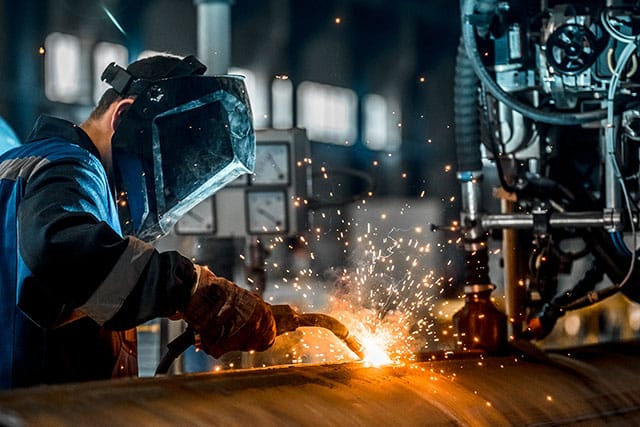
Moreover, partnering with a Mexico shelter company can expand upon these advantages, resulting in even further cost savings and benefits. Here’s how:
Mexico’s competitive labor market is one of the key reasons why U.S. and other foreign manufacturers set their sights on nearshoring to Mexico when they want to expand. With a highly skilled workforce to recruit from and a lower cost of labor, operators can fulfill the technical roles they need while reducing their expenses.
Additionally, when working with a Mexico shelter company like IVEMSA, manufacturers can save thousands of dollars in monthly costs associated with HR management and payroll, and labor compliance, among many other administrative responsibilities necessary for production setup.
U.S. manufacturers also benefit from competitive lease prices in Mexico. Industrial leases are approximately $.70 per square foot per month for Class A buildings. These are well-constructed facilities in state-of-the-art industrial parks located near main transportation routes for convenience.
Furthermore, thanks to the close proximity between Mexico and the U.S. market, manufacturers can save on shipping expenses compared to operating in China. Also, as the competition spikes to find viable industrial space, shelter services in Mexico can help manufacturers cut down on costs and maximize resources when choosing a site.
Shelter services start with the site selection process, which involves a matrix of potential factories in Mexico based on the company’s specific needs. A shelter company works within a manufacturer’s budget and limits the legwork of visiting multiple sites. This accessibility to local expertise and experience creates a more seamless transition when securing a project site and setting up operations.
The IMMEX program was first introduced as a way to entice foreign manufacturers to invest in production in Mexico. Since then, it has helped global leaders expand their companies and receive unique tax benefits.
Those approved under the IMMEX program are exempt from the 16% value-added tax (VAT) on all temporarily imported equipment, materials, and raw goods being used for production. However, it can take several weeks, possibly months, before a standalone entity is approved.
Whereas, manufacturers operating under the shelter model can take advantage of these tax benefits from day one since all permits and certifications needed to operate are already in place.
For those operating in Mexico for the first time, the learning curve can be steep, which is why the majority of manufacturers choose to work with a Mexico shelter company. Shelter services include HR, accounting, taxes, trade compliance, and more.
By delegating these tasks to a shelter company, manufacturers can fully focus on production and maintain ownership of all equipment, processes, and intellectual property rights. It also allows for a quicker timeline of three to four months before production is launched, which is nearly half the time needed for setup as a standalone entity.
It’s a competitive landscape, and manufacturers are always looking for ways to enhance their efficiency and cut down on costs. Nearshoring to Mexico is a strategic solution that achieves both of these goals and has proven successful for U.S. and other foreign manufacturing companies for decades.
The benefits of Mexico manufacturing continue to draw in companies wanting to expand their production internationally. While many are familiar with the idea of what this strategy has to offer, there are also many common mistakes foreign manufacturers make when nearshoring for the first time.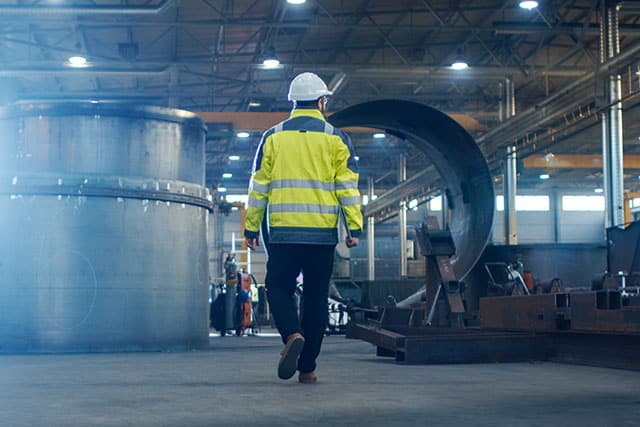
To avoid these, we’ve rounded up several ways a shelter company can help make the transition to manufacturing in Mexico as seamless as possible.
There are business and cultural differences to consider when operating in any foreign country. Enlisting the knowledge and experience of local experts can expedite setup and make it smoother.
Partnering with a Mexico shelter company automatically provides an innate understanding of compliance regulations and the industrial real estate and labor market, as well as insights into how to handle differences in communication and workplace expectations. Therefore, manufacturers can focus their time on production without having to worry about figuring things out on their own.
Failure to follow Mexico’s laws and regulations can lead to fines, project delays, and in some cases, full shutdowns. A key value of implementing Mexico shelter services is it minimizes risk and liability. Working under a shelter protects foreign manufacturers from legal exposure and includes all the permits and certifications necessary for them to legally operate in Mexico.
As more manufacturers look to Mexico as a cost-effective strategy, finding site facilities and skilled workers becomes more competitive. A shelter company can point manufacturers in the right direction regarding where to launch production and assist with recruiting and hiring qualified employees.
Through a site selection analysis, U.S. and other foreign manufacturers are given an overview of viable areas in Mexico to consider as they decide which location makes the most sense for their goals. Additionally, to effectively manage cross-border teams, it’s important to be aware of labor laws to ensure compliance is met. This includes addressing work week schedules, paid time off benefits, and general interactions between workers that may differ from the norm recognized in the U.S. and other countries.
While nearshoring to Mexico often reduces costs comparable to the U.S., Cina, and other industrial regions, working with a shelter company, specifically, can save businesses up to 50% on administrative roles. Additionally, companies won’t have to hire individual administrative departments to get their production up and running.
Shelter services in Mexico cover all administrative tasks necessary to launch production. These include HR, accounting, daily trade operations, payroll, taxes, and more. Due to the efficiency of the shelter model, manufacturers can expect to launch production in as little as three to four months, compared to the standard six to seven months it takes to set up a new legal entity.
Some companies choose to outsource their production to third-party manufacturers in Mexico. While this may help meet their demand, it limits oversight ability and maintaining quality assurance.
Shelter services in Mexico do not cover production tasks and responsibilities. This is left to the manufacturer, giving them full oversight of their processes and complete ownership of all tools, materials, and equipment, as well as any intellectual property rights.
There are several moving parts necessary to launch production in a foreign country. When making the move to Mexico, the majority of manufacturers choose to operate with Mexico shelter services.
This approach is customizable and allows companies to stay flexible to either expand services or eventually operate as their own entity. Those who work with IVEMSA typically stay for an average of 15 years, though there is always the opportunity to graduate from the shelter program as needed.
Hiring qualified labor is the top priority for manufacturers today. Finding enough industrial workers at a cost that makes sense for sustainability and growth is essential. With the level of skill and stability across several sectors, including automotive, medical, and aerospace manufacturing, expanding the employee pool has become increasingly competitive.
Thus, a growing number of U.S. and other foreign companies are exploring Mexico as a recruiting option to fulfill industrial roles as they expand. Manufacturing in Mexico allows for large-scale production with cost-effective, labor-intensive work while maintaining intellectual property protection.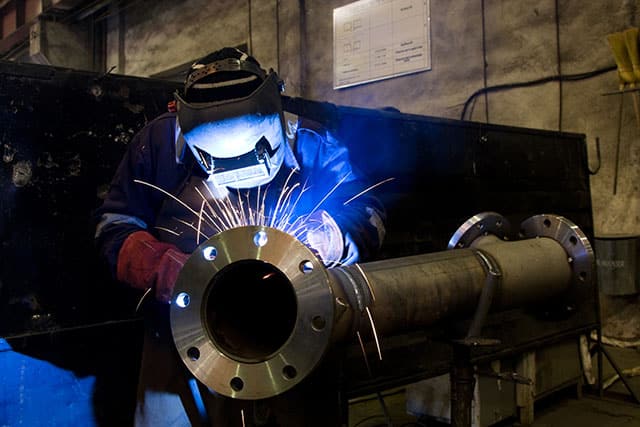
In fact, medium- or large-sized organizations without a presence in Mexico find themselves being left behind. To further the benefits, partnering with a Mexico shelter company gives foreign manufacturers an extra advantage when it comes to recruiting and retaining workers.
Here’s how:
In Mexico, certain locations are equipped to support specific sectors better. For instance, areas like Queretaro and Monterrey are known for their automotive and aerospace concentrations. Whereas, manufacturing hubs like Mexicali and Tijuana also add medical device and electronics manufacturing to the mix.
Regardless of what sector a manufacturer specializes in, a Mexico shelter company has the experience and expertise to point them in the right direction so they can recruit qualified employees as quickly as possible.
It’s rare for a company to only require entry-level employees for simple processes. In this case of low-mix, high-volume production, Asia is likely the more cost-competitive location. Depending on the output and business goals, the solution may be to diversify a portfolio by expanding to Mexico while maintaining operations in China at the same time.
As manufacturers consider operating in Mexico, a shelter company can schedule site visits to local universities and training centers to match them with the type of employees they’ll need for their projects.
A shelter will also help with employee contracts, minimizing risk, and keeping retention high. Although manufacturers can perform these recruiting and hiring functions on their own, it’s far less costly to have Mexico shelter services in place. In addition to HR, a shelter company handles other key administrative areas, such as accounting, taxes, and trade compliance, which are departments manufacturers would otherwise have to hire separately.
The main benefit of operating in Mexico is the availability of cost-competitive labor and employees with specialized skills which are difficult to find in the U.S. A shelter company can estimate the cost of production annually by factoring in the number of workers and required technical background needed.
Working with a shelter company is the way the majority of manufacturers choose to operate in Mexico. It reduces labor expenses, while also minimizing legal risk and exposure of operating in a foreign country. At the same time, it allows manufacturers to focus their full attention on production and safeguards their intellectual property rights.
See if making a shift to Mexico manufacturing makes sense for your company, particularly when it comes to fulfilling the need for industrial workers.
Mexico shelter services are an invaluable resource for U.S. and other foreign manufacturers and have been an essential part of their growth for decades. However, as more companies are exploring the option of expanding production to Mexico for the first time, it’s best to identify what makes for a good fit.
Though partnering with a shelter company eases the transition to manufacturing in Mexico, there are a few misconceptions regarding what shelter services do and do not entail.
To clear up confusion and help determine if implementing shelter services is the best route, here is an overview of what you need to know.
A Mexico shelter company works with U.S. and other foreign manufacturers to share strengths in a safe, efficient manner, creating a win-win situation for all parties involved. However, many mistakenly believe a shelter company takes on the production itself, which is not true.
Rather, a shelter company handles all the administrative tasks necessary for manufacturing so leaders can focus on their operational processes uninterrupted. Other unique benefits include:
● Lower overhead on administrative functions
● Reduced learning curve
● Tax advantages through the IMMEX business model
● Quicker setup times
● Reduced legal risk and liability
● Competitive cross-border costs
● Economies of scale
● Leverage and support with the Mexican government
● Allowance to focus on your core business from day one
Additionally, this type of partnership is flexible enough to allow manufacturers to part ways (or alternatively, ramp up production) at any time. While most extend working with a shelter for several years, it doesn’t have to be a permanent solution. A shelter company like IVEMSA will ease the transition for companies that wish to “graduate” from the program and eventually operate on their own.
Therefore, Mexico shelter services are a perfect fit for:
● A manufacturing company eager to expand versus one that wants to assign a third-party operator
● A manufacturing company with good products and intellectual property value
● A manufacturing company with a plant, equipment, and materials already in place that simply needs shelter services to assist with production launch
Having the local expertise of a shelter company helps to streamline the process of setting up production in Mexico. It also saves on costs, time, and resources so manufacturing leaders can concentrate on all things production.
As mentioned, a Mexico shelter company provides all the necessary administrative departments that manufacturers need to operate. This includes:
● Traffic and Customs
● HR, Accounting, and Taxes
● Payroll Processing
● Local Accounts Payable
● Talent Recruiting
● Dedicated Project Manager for Project Launch
● Full Compliance for Your Mexico Operation
It also includes assistance with site selection, permitting and certifications necessary for operating in Mexico, as well as consulting needs. The majority of foreign manufacturers often choose this option because it costs less than hiring these departments individually. Plus, they benefit from the local expertise, experience, and network a Mexico shelter company provides.
A shelter company is not a third-party manufacturer. Shelter services don’t include advice on where to buy equipment or materials or involve creating the product itself.
Additionally, it is important to clarify that all the costs related to your operation will be handled as a pass-through expense. This means a shelter company will not finance your costs for utilities, employee salaries, or taxes.
These types of expenses can be estimated by your shelter partner but are paid by the manufacturer. Though the shelter company can provide guidance in these areas, the costs and any purchase or expense made in Mexico are ultimately at the discretion of the manufacturer, with the shelter as the facilitator.
Those interested in Mexico shelter services need to be involved in production. Although a shelter company assists with recruiting and finding qualified workers, the manufacturer is tasked with onboarding and training production teams.
For companies exploring production in Mexico without establishing an actual physical presence, contract manufacturing is likely the more favorable option.
Shelter services are not required for manufacturers operating in Mexico. In some cases, it may not even be the most optimal fit. To determine if working with a shelter company is beneficial or if exploring a contract manufacturing option is best, consider the following questions.
Mexico shelter services are valuable when placing technical labor for various manufacturing sectors. However, when companies produce a consistent, predictable run of products, contract manufacturing may be the better option. This often applies to companies in the earlier stages of business growth when the demand for low-mix, high-volume products is greater than their current capacity.
Is outsourcing production the goal?
Shelter services are only available and applicable to foreign manufacturers running their own production. Companies that wish to outsource these processes to a third party will need a contractor manufacturer. Keep in mind, with contract manufacturing, companies do not maintain full oversight over quality assurance or consistency like they do when working with a shelter company.
Do you want to establish a legal presence in Mexico?
A shelter company serves as a foreign manufacturer’s legal presence in Mexico and takes on the administrative responsibilities associated with manufacturing. Though shelter services typically apply to those operating under the shelter umbrella, they are also applicable and can be customized for standalone entities as well.
Do you own your equipment, materials, and processes?
To benefit from shelter services, a company must own all of its equipment, materials, and operating processes. These are not provided as part of a shelter company partnership. Foreign manufacturers that use shelter services to delegate administrative tasks find value in maintaining full ownership over the full scope of production including their intellectual property rights.
Do all shelter companies operate in the same way?
In general, shelter companies offer similar services. However, it’s best to clarify what is included as some differ. For instance, some shelters may require manufacturers to use facilities they already own.
This can lead to complications down the road if a manufacturer graduates from the shelter program because they might have to leave their lease as well. However, IVMESA provides flexibility for manufacturers to choose their buildings and tailor shelter services to adapt to their specific needs.
As a well-established Mexico shelter company, IVEMSA has nearly 40 years of experience helping U.S. and other foreign manufacturers reach their production goals. With a 15-year average customer retention rate, the success of our shelter services speaks for itself.
However, if you’re unsure about whether this solution makes sense for your company or want to learn more about whether your project is a good fit, we are happy to discuss your options.
Mexico’s strategic location and cost-effective, skilled workforce have created a successful environment for U.S. and other foreign manufacturers that want to expand their reach. Shelter manufacturing services are available for those new to operating in Mexico as well as those who wish to establish their own legal entity.
When working with a shelter, foreign operators reduce their legal risk and exposure. Plus, there is a reduced learning curve when navigating Mexican laws and regulations. Either way, though, shelter services can be customized to meet the needs of each manufacturer and project.
Here are the main advantages shelter services provide and how they help to ease the transition for foreign companies manufacturing in Mexico.
Manufacturers that choose the shelter route save significantly on operating costs, including labor, infrastructure, and permitting and licensing fees. The need for outside consulting is limited as all administrative departments needed to launch production are already in place.
These include HR and payroll, taxes and accounting, and trade compliance services. Passing these responsibilities to a shelter company allows manufacturers to focus fully on operational processes and fully maintain control over intellectual property rights.
A shelter company also provides instant tax advantages and trade benefits. Every foreign company manufacturing in Mexico must be approved for the IMMEX program before production can start. The program exempts foreign manufacturers from the 16% value-added tax (VAT).
Through a shelter’s certification, this exemption is automatically applied to all temporarily imported goods, equipment, and materials needed for the manufacturing process. Furthermore, duties are not applied when exporting finished goods to the U.S. and Canada if they are marked as “Made in Mexico.”
When implementing shelter services in Mexico, manufacturers can expect to launch production in three to four months. This cuts the setup time nearly in half compared to the time it takes to set up a new legal entity. This efficiency saves costs and allows manufacturers to get products to market faster.
Shelter manufacturing services are designed for flexibility as manufacturers want to scale. Also, they are set up to support companies that eventually want to “graduate” from the shelter and become their own separate entity. With the constant changes that can occur during production, it’s helpful to have the agility to transition as needed.
Manufacturing in Mexico has been a unique advantage for U.S. and other foreign manufacturers for decades, spanning across multiple sectors. For 40+ years, IVEMSA has provided shelter services in Mexico to help manufacturing companies launch and manage their production. With a 15-year average retention rate, there is a reputation and history rooted in success when partnering with clients as they grow their businesses.
Making the transition to Mexico manufacturing can be challenging without the guidance of a local shelter company to streamline the process. Whether you are expanding production for the first time or seeking the support shelter services provide, our team can help you figure out the best route.
Global manufacturing competitiveness continues to rise as new technologies drive higher demand. And Mexico serves as a central hub of industrial support for U.S. and other foreign manufacturers as they seek to expand their production.
For decades, manufacturing leaders have successfully established a presence in Mexico with consistent growth across several sectors throughout the years. As more companies decide to follow suit and grow their own international footprint, they have several  competitive advantages thanks to what manufacturing in Mexico has to offer.
competitive advantages thanks to what manufacturing in Mexico has to offer.
Here are reasons why Mexico continues to be a viable option when expanding production and how shelter manufacturing services can make a positive difference.
Mexico is an ideal location for foreign manufacturers serving a U.S. audience. The proximity between Mexico and the U.S. results in quicker deliveries and less expensive shipping than other popular trade areas, such as China. Also, Mexico’s expansive transportation routes and supply chain create greater reliability so companies can get their products to market faster.
The U.S. has faced setbacks in fulfilling manufacturing roles over the past few years. With an entire industrial generation entering retirement and younger generations not as quick to take their vacant spots, there are millions of skilled laborers needed to complete the production demand.
Meanwhile, Mexico is known for its industrial workforce availability and low cost of labor, which makes it an optimal choice for foreign operators when recruiting and retaining qualified workers.
Large-scale production and quicker delivery times don’t take away from the commitment to quality when manufacturing in Mexico. There are several quality assurance protocols in place to ensure manufacturers stay competitive and keep their reputations intact.
Additionally, the relatively quick travel time between the U.S. and Mexico allows project leaders to provide in-person production oversight more easily and manage adjustments as needed.
After gaining speed for several years, Mexico surpassed China in 2023 as the top trading partner with the U.S. This is partially due to the incentives detailed by the trade agreement between the U.S., Canada, and Mexico which sets requirements regarding content origins and intellectual property protections. In addition to the USMCA, Mexico has 12 free trade agreements with 48 other countries, making it one of the most open and competitive markets in the world.
To help U.S. and other foreign operators with Mexico manufacturing, there is the unique advantage of shelter manufacturing services. Working with a shelter company provides local expertise and experience to help companies make a seamless transition at a lower cost. Shelter services in Mexico include all administrative responsibilities necessary to launch production, including site selection, HR and payroll, taxes and accounting, and trade compliance.
Mexico has played an important role in the global market and has continued to rise in ranking as a quality trade partner for the U.S. and other countries. To benefit from the competitive advantages of manufacturing in Mexico while also saving on costs, contact IVEMSA today.
Sources:
https://ustr.gov/countries-regions/americas/mexico#:~:text=Mexico
https://www.trade.gov/country-commercial-guides/mexico-trade-agreements#